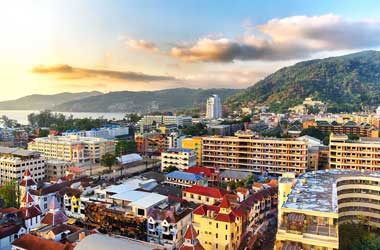Gaming Industry Analysts Express Concern About Thailand’s 5 Resort Proposal


- Thailand looking at legalizing 5 casino resorts
- Casino resorts are expected to boost the overall Thai economy
- Gaming analysts have their concerns about this casino gaming proposal
Gaming analysts have expressed their concerns about the parliamentary proposal about Thailand having five countrywide casino resorts, which are expected to stimulate local economic development. Commentators and analysts spoke about several challenges the country might confront once it legalizes casinos.
Ben Lee of IGamiX Management and Consulting Ltd., underlined the importance of public consensus on Thailand’s casino liberalization. Lee vehemently criticized the recommendations of the National Assembly committee for not addressing local sentiments. Currently, establishing casinos is illegal in Thailand. Yet, an unregulated gaming market has continued to mushroom despite the existence of a licensed lotteries system.
The Innovation Group’s Michael Zhu also acknowledged the significance of the Thai public’s sentiments in decisions related to liberalization. For him, the reactions of several social groups in Thailand were yet to be witnessed on the issue. Many commentators made a passing reference to Japan’s failure in constructing a brilliant integrated resort scheme. The government’s proposed regulations for the industry intimidated many casino operators, who quickly jumped ship and backed out of the race.
The National Assembly committee was tasked with the matters related to establishing casino complexes in Thailand. The committee recommended five countrywide locations for building casinos in Chiang Rai, Pattaya City, Phuket (pictured), Udon Thani, and Greater Bangkok. Many supported the proposal as they felt that constructing casinos would create employment, generate tax revenue and attract foreign tourism. The committee also proposed a 30 percent tax rate on the legalized industry.
Zhu and Lee deemed the tax as demanding and counter-productive in arresting the rise of illegal gambling dens. Lee suggested that establishing countrywide resorts has more to do with domestic law enforcement and not ushering economic development for regions beyond Bangkok. Making casinos more accessible to the locals would also stop them from visiting border casinos in neighboring states rather than driving foreign tourism.
C3 Gaming’s Klebanow Favors Reasonable Restrictions
The proposal also had many supporters, such as C3 Gaming Group’s Andrew Klebanow. He said that the 30 percent is fair despite being high. Klebanow opined that reasonable regulations could create a successful resort industry in Thailand. He added that it was up to Thailand to either emulate Singapore’s successful strategies or Japan’s failure in adopting a better regulation regime for casinos.
Casinos in Thailand can be legalized by amending the country’s Gambling Act. The legalization proposal might be presented to the House of Representatives (HoR) by November 2022, a senior HoR committee member indicated.
Recent Posts
Marina Bay Sands Secures $9bn Loan for Casino Hotel Expansion
Summary: Las Vegas Sands secured a $9 billion loan for Marina Bay Sands' expansion in…
LV Sands, Concerned About Online Competition Amid Plan to Build $6bn Casino
Summary: Las Vegas Sands chairman and CEO Rob Goldstein is concerned about the impact of…
Biloxi Casino Plans Advance as MGC Considers Two Venues
Summary: Tullis Gardens Hotel and the Tivoli development are in the works. The casinos would…
Rio Hotel & Casino Finishes Phase One of Massive Property Renovation Project
Summary: Rio Hotel & Casino has completed phase one of its multi-year property-wide renovation project.…
Industry Heavyweight Execs Talk Tech Future at TribalNet Conference & Tradeshow
Summary: Monday’s TribalNet Conference & Tradeshow brought together gaming industry executives who discussed the future…
Nevada Regulators Propose Solution for Armed Casino Security Shortage
Summary: The Nevada Gaming Control Board addressed the shortage of armed casino security following the…
